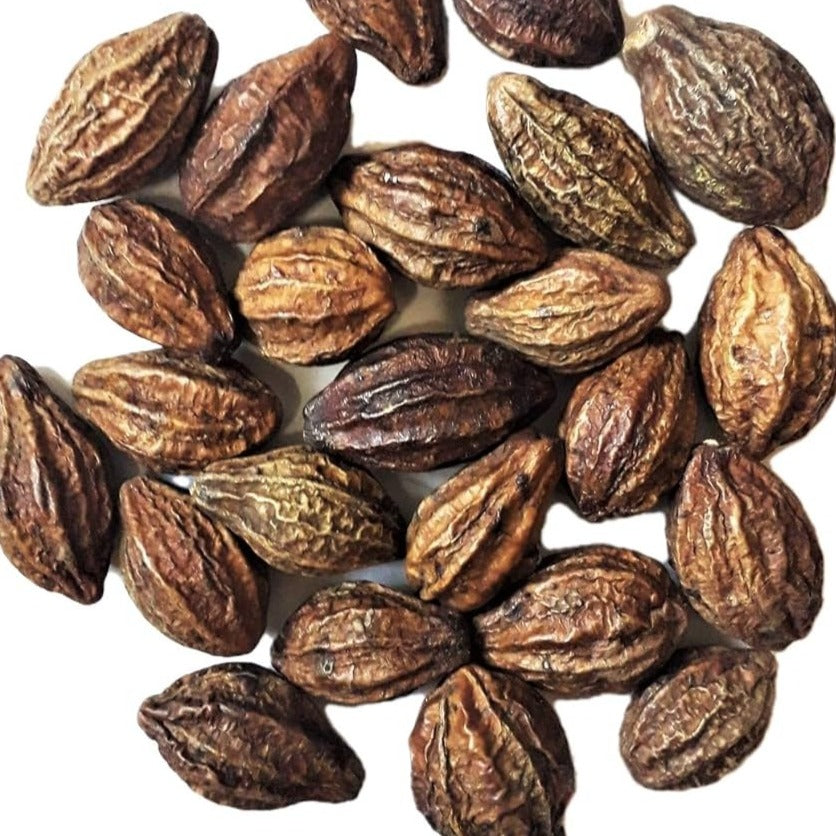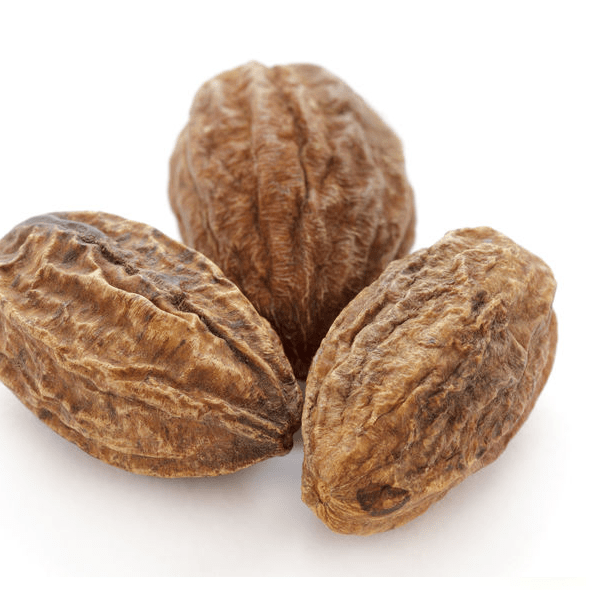Good Food Bar
Haritaki / Harad (Terminalia chebula)
Haritaki / Harad (Terminalia chebula)
Couldn't load pickup availability
Haritaki, also known as "Harad" in Hindi and "Terminalia chebula" in scientific terms, is a tree native to South Asia and is widely used in traditional medicine systems, including Ayurveda. It is one of the three fruits that make up the famous Ayurvedic formula called "Triphala," which also includes Amla (Indian gooseberry) and Bibhitaki. Here's a description of Haritaki:
1. **Botanical Description:**
- **Scientific Name:** Terminalia chebula
- **Family:** Combretaceae
- **Appearance:** The Haritaki tree is a deciduous tree that can grow up to 30 meters in height. It has oval-shaped, green leaves, and the fruit is small, green when unripe, and turns yellow or black when ripe. The fruit has a hard shell and contains a single large seed.
2. **Traditional Uses in Ayurveda:**
- **Digestive Health:** Haritaki is primarily known for its beneficial effects on digestion. It is considered a natural laxative and is used to treat constipation and promote regular bowel movements.
- **Detoxification:** It is believed to have detoxifying properties and is used in cleansing and detoxification therapies in Ayurveda.
- **Rejuvenation:** Haritaki is considered a Rasayana in Ayurveda, which means it is believed to have rejuvenating and anti-aging properties.
- **Respiratory Health:** It may be used to address respiratory issues like cough and asthma.
- **Heart Health:** Some traditional Ayurvedic texts suggest that Haritaki can be beneficial for heart health.
- **Mental Clarity:** Haritaki is believed to enhance mental clarity and support cognitive function.
3. **Chemical Composition:**
- **Phytochemicals:** Haritaki contains a variety of bioactive compounds, including tannins, chebulinic acid, gallic acid, and ellagic acid, which contribute to its medicinal properties.
- **Antioxidants:** It has antioxidant properties that can help protect cells from oxidative damage.
- **Anti-inflammatory:** Haritaki may have anti-inflammatory effects, which can be beneficial for various health conditions.
4. **Preparation and Dosage:**
- Haritaki is typically consumed in powdered form, either on its own or as part of Ayurvedic formulations like Triphala.
- The dosage can vary depending on the specific health issue and the individual's constitution. It is recommended to consult with an Ayurvedic practitioner or healthcare provider for personalized guidance.
5. **Cautions and Side Effects:**
- While Haritaki is generally considered safe when used appropriately, excessive consumption may lead to diarrhea or other digestive discomfort.
- Pregnant and breastfeeding women should use caution and consult with a healthcare provider before using Haritaki.
Haritaki is an important herb in Ayurveda, known for its role in promoting digestive health, detoxification, and overall well-being. It is a versatile herb with a long history of use in traditional medicine systems in South Asia, and its popularity continues in modern herbal and holistic health practices.



